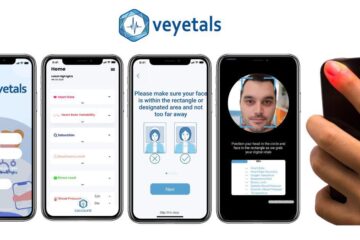Image Credit: Canva
Introduction
Access to high-quality healthcare services for people and families is greatly facilitated by health insurance. The world of health insurance is changing along with the landscape of healthcare. The future of health insurance is being shaped by technological developments, modifications to healthcare delivery methods, and changing consumer expectations. In this blog, we’ll examine the new tendencies and creative ideas that are revolutionising healthcare insurance and laying the groundwork for a system that is more patient-centric and effective.
Table of Contents
ToggleIntegration of telehealth and digital transformation
The digital revolution has impacted health insurance as well as all other facets of healthcare. Insurance companies are embracing remote care and virtual consultations as telehealth takes off. Telehealth enables people to communicate with medical professionals while relaxing in their own homes, reducing the need for in-person encounters and enhancing access to care. Telehealth services are being added to insurance plans’ coverage options as a result of this trend, offering practical and affordable healthcare solutions.
Care that Is Personalised and Value-Based
Individualised and value-based care will be the cornerstone of health insurance in the future. Insurance companies are putting more of an emphasis on customising coverage to fit each person’s needs rather than taking a one-size-fits-all approach. This includes providing individualised health management programmes, financial incentives for preventive care, and assistance with disease management. Insurers are moving the emphasis from reactive treatments to preventive measures by encouraging healthier lifestyles and proactive healthcare, which will ultimately improve patient outcomes and lower healthcare costs.
Analytics of Big Data and Predictive Modelling
Predictive modelling and data analytics are increasingly being used in health insurance. Big data is being used by insurance companies to find patterns, forecast health risks, and stop complications. Insurers can gain a better understanding of the health status of their members by analysing enormous amounts of data, including medical records, claims data, and lifestyle information. This makes it possible for earlier intervention, more precise risk assessment, and individualised care planning.
Customer Experience Is Improved
Health insurance will increasingly focus on the needs of its customers and strive to enhance their overall experience. Insurance companies are spending money on user-friendly mobile applications and digital platforms that provide quick access to information, policy management tools, and individualised support. Additionally, insurers are working to streamline claims, simplify the insurance process, and increase the transparency of pricing and coverage options. These initiatives seek to improve engagement, empower people, and strengthen the bonds between policyholders and insurers.
Partnerships for Integrated Care and Collaboration
Insurance companies are increasingly collaborating with healthcare providers, pharmacies, and other stakeholders to deliver comprehensive and coordinated care. In order to ensure seamless and effective care delivery, these partnerships foster integrated care models, where healthcare professionals collaborate. Insurance companies can improve care coordination, lessen fragmentation, and enhance health outcomes by integrating different healthcare services under a single roof.
Place an emphasis on mental health and wellbeing
Insurance companies are extending their range of coverage options to cover comprehensive mental health services as they realise how important mental health is. This covers the cost of therapy, counselling, and prescription drugs for mental illness. Additionally, insurers are incorporating digital platforms and apps for mental health into their product lines, giving people access to resources for stress reduction, self-care, and mental health.
Conclusion
Health insurance has a promising future ahead of it, thanks to innovative developments that hope to revolutionise healthcare coverage. Insurance companies are changing to meet the changing needs of individuals and families, from telehealth integration and personalised care to data analytics and improved customer experiences. The future of health insurance holds the promise of a more effective, accessible, and comprehensive healthcare system for all by embracing digital transformation, promoting preventive care, and prioritising patient-centric models.



